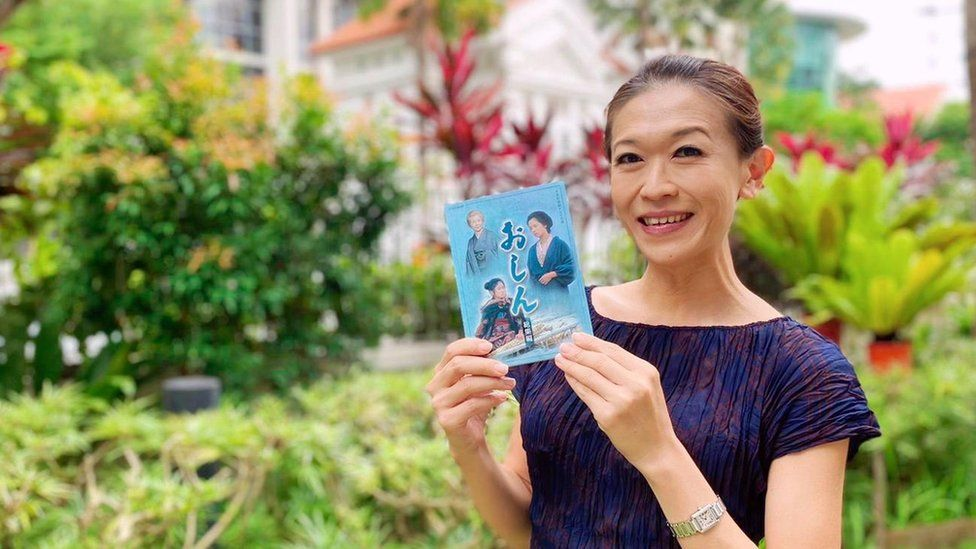
Oshin: The gritty Japanese drama that gripped the world
The ‘Oshindrome’
From Vietnam to Peru,
the global obsession with the show was such a novelty in the 1980sthat it had a name: the “O Syndrome”, or “Oshindrome”.
Oshin stirred audience emotions on a scale that no other television series had done previously… a kind of Oshin fever raged worldwide,
said Dr Singhal, adding that the show’s impact was “profound”.
In Thailand,
cabinet meetings were reportedly rescheduled so that they did not clash with the broadcast of episodes.
A Bangkok newspaper
also saw its circulation go up by 70% after publishing a weekly synopsis of the show.
In Hong Kong,
its legacy is preserved in the form of Oshin House, a retail chain selling snacks from Japan.
Its founder had said he operated his business with “the spirit of Oshin” – being tough and industrious.
In Vietnam,
some still use the show’s title as a word for domestic helpers, in reference to the TV heroine’s first job.
In Hanoi, an entire neighbourhood where many cleaners and nannies live has come to be known as the “Oshin commune”.
In Ghana
“to suffer like Oshin” has become a common phrase to describe those going through real hardship.
to reverse anti-Japanese sentiments
Some have even argued that Oshin helped to reverse anti-Japanese sentiments after its brutal occupation of some South East Asian countries during World War Two.
Viewers in Thailand and Indonesia,
for example, “dramatically” changed their views of the “cold-blooded” Japanese after watching the series, Dr Singhal said.
Singaporean fan Kit Ow
remembers watching the show religiously as a child with her mother – but not her grandmother.
BBC News